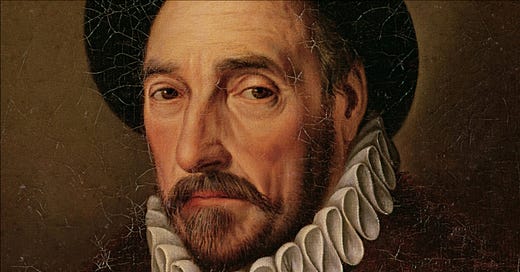Michel de Montaigne on education
From his essay, "Of the Education of Children"
"Who ever asked his pupil what he thinks of rhetoric or grammar, or of such-and-such a saying of Cicero? They slap them into our memory with all their feathers on, like oracles in which the letters and syllables are the substance of the matter. To know by heart is not to know; it is to retain what we have given our memory to keep." - Michel de Montaigne
This holiday season, give the gift of EduThirdSpace. If you routinely learn something new from this newsletter and think a colleague, family member, or friend would also value the content, spread the love by gifting a subscription.
Michel de Montaigne was a French statesman and philosopher during the 16th century. Montaigne dedicated himself to writing after his retirement from public life, and as a result of his writing career, is known for popularizing the essay as a literary genre. He published Essais (Essays), a collection of 107 essays across three books, in 1580. "Of the Education of Children" is one such essay.
Montaigne declared the upbringing and education of children as "the greatest and most important difficulty in human knowledge. [...] Little industry is needed to plant them, but it is quite a different burden we assume from the moment of their birth, a burden full of care and fear—that of training them and bringing them up." Through education, his primary piece of advise is to guide the young toward the best and most profitable things. He viewed character-building as the objective of education rather than strictly acquiring knowledge, thus a youth's teacher, or guide, ought to exhibit the most desirable character rather than be one filled with knowledge.




